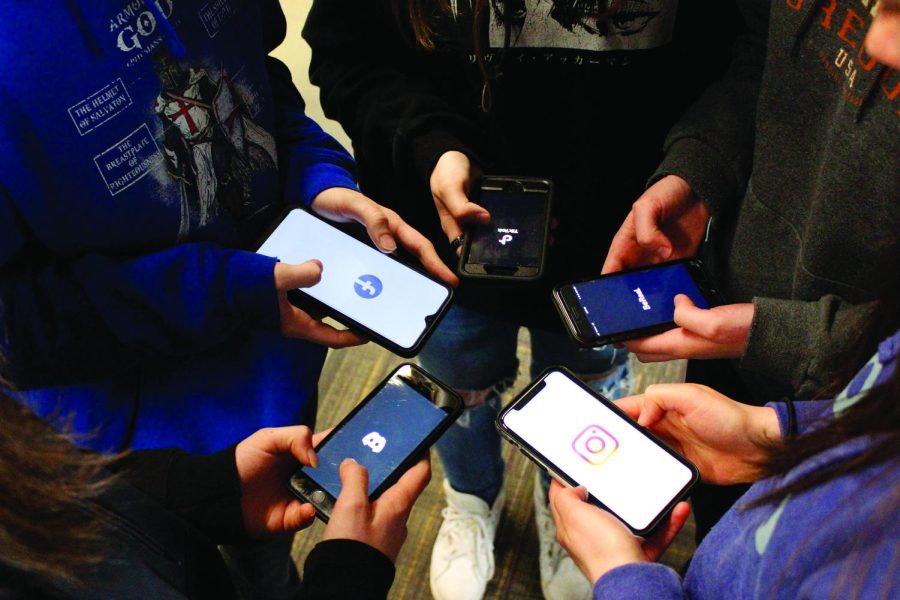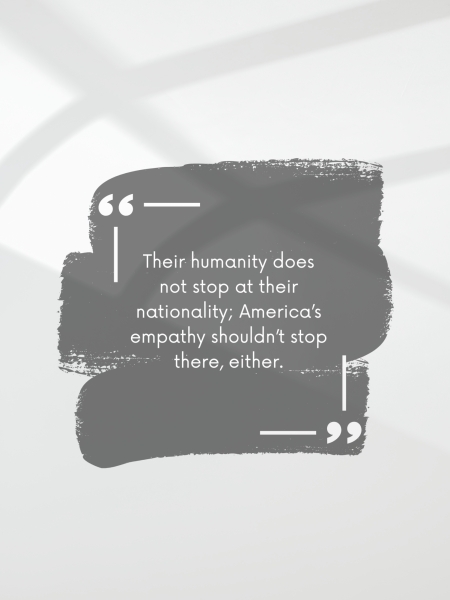Social media damages generation
Every day, teenagers all over the world spend countless hours scrolling endlessly through social media sites that steal their time and attention. Today, 97% of teenagers are on the internet daily, according to Pew Research Center.
With 97% of teenagers spending time on the internet every day, the use of social media has increased, and new platforms have been created in order to diversify the ways one can see the content on display. Because of these new platforms, competition within the social media world has increased. Marketers and entrepreneurs have found innovative ways to increase the amount of time a person spends on their specific platform.
Bright icon colors grab the attention of users and make them more likely to click on specific apps, and notifications play the exact same role. The red color that pops up when someone receives a text message, Snapchat notification, email or missed call causes their eyes to be instantly drawn to that particular notification. This increases the likelihood of them clicking on the app.
Once someone is on a social media platform, the platform becomes individualized. No person has the same “for you” page because every post that shows up is specific to each person’s interests and past favorites. Increasing content that is similar to what someone has viewed or interacted with in the past allows social media platforms to keep the attention of their users.
Social media entrepreneurs are not trying to better their users but are instead trying to make a profit from other people’s addictions. This is only one reason why access to social media networks needs to be limited. People should focus on bettering themselves and their community, not on the controversial world that social media has created.
Still, these platforms have engraved themselves into the norms of culture in America. They have become a new source of addiction, which has caused many mental health issues to become more prevalent in society.
Teenagers are becoming more withdrawn from their peers and more addicted to their cell phones. With a screen to hide behind, bullying has taken a new turn and the overall health of teenagers is declining. Teenagers stay up later at night and are much less focused during the day because of their phones and the constant thought of social media.
This is unhealthy and is an issue that needs to be addressed. Students should be able to better focus in class, but the only way they will be able to do this is with the decline of social media use. Not only do teenagers need to take initiative to help better their future by limiting their access to social media, but parents should also discourage the use of social media and limit the access that their children have to the internet every day.
Teenagers’ confidence is limited, and the want to fit in and look as good as possible is a constant concern. Whether it is sending a Snapchat to a friend or creating a TikTok in the parking lot, social media encourages young people to appear “camera ready” at all times, which can damage their sense of self-worth and self-confidence.
Aside from not feeling confident, depression and anxiety are increasingly serious issues that teens face today. These issues are continually stimulated by social media platforms that steal their attention away from reality and draw them into a world full of negativity and falsehoods.
Social media causes fewer face-to-face interactions among younger generations because they are able to simply stay in contact without ever seeing their friend. There are many downfalls to this new form of communication. Teenagers become more detached from their friends and in some cases, they are talking to people who are much different than their screens portray.
Social media platforms pose a threat not only to the mental health of individuals, but to the overall well-being of the country as a whole. Many social media platforms are not created within the United States, and data that is collected is stored in foreign countries that would love to see the decline of the United States.
This, along with the hours that are wasted scrolling through pointless content, is yet another reason people should limit their access to social media. People have the ability to sit and continually scroll through sites that are designed to captivate their attention and teach them nothing.
Social media wastes the time of youth and adults all over the world. Hours are spent every day on social media sites, yet nothing is gained that could not be focused somewhere else. Instead of scrolling through pointless content, people should increase their knowledge and decrease their screen time, so they can begin focusing on bettering themselves.






